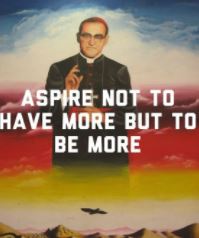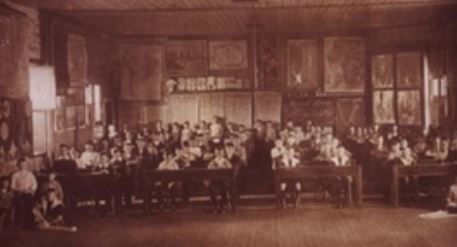The greatest act of empathy
Every now and then a word or phrase enters our lexicon to try to capture some latest issue or development.
We all clearly remember the technical jargon like bits and bytes and in more recent times we have been introduced to a particular perspective of “fake news”.
Each of these new words or new ways of using words came about because something changed or was changing.
Of late, a new phrase has popped up in the media: “Empathy Training”.
In my role as Principal, I have to undergo mandatory training for many things like Child Protection, Governance, and Work Health and Safety. These I do to make sure that I keep up to date with the latest laws and best thinking in these areas.
But empathy training?
I am very saddened to hear that a figure in public life needs to undertake empathy training… saddened but not surprised.
Empathy is generally defined as the ability to sense other people’s emotions, to be able to imagine what someone else might be thinking or feeling. To step into their shoes so to speak. We all know that empathy is important because it increases the likelihood of helping others and showing compassion. It is a building block of morality, for people to follow the Golden Rule, the rule that Jesus gave us: To love one another as I have loved you and to love your neighbour as yourself.
Apathy, defined as “a lack of interest, enthusiasm, or concern” is the opposite of empathy.
How ironic that empathy training is being laid bare at a time in the Christian calendar when we remember and celebrate the greatest act of empathy – the crucifixion and death of Jesus leading to the victory over death through His resurrection.
There are growing voices within society who cannot see the relevance of religion, so other than a few days off work and the odd easter egg, it’s just business as usual.
Some within society may even say, this story is old news maybe even fake news and definitely irrelevant because we don’t punish people by crucifixion. Or do we?
Others are even more apathetic and just don’t see what all the fuss is about.
In any case, the world has changed…. but have we?
What hasn’t changed is our human condition, at times our lack of empathy and compassion for others, and our increasing self-centeredness and apathy.
The message of Jesus Christ is as relevant today as it was then. Jesus took on all that it is to be human. He walked in our skin. The epitome of empathy.
Good Friday reminds us of our human frailty, our weakness, our ability to be intolerant and apathetic towards others… of our sinfulness.
The Resurrection with its promise of hope and new life is not given for us to keep hidden, but to radiate from our grateful hearts out to the world in word, action, and above all in our thoughts towards others.
Let our prayer be that empathy training disappears from our media circles because we don’t need it any more.
May this Easter time challenge each of us to be open-hearted so that all will see the Risen Christ through us.
God bless you and your families this Easter.


 et us take time to remember the life and teachings of Saint Oscar Romero.
et us take time to remember the life and teachings of Saint Oscar Romero.
 match in November, where I played my first 90-minute game in the iconic green jersey. Especially during COVID-19, it was a very overwhelming process, but to come into a professional environment was amazing!
match in November, where I played my first 90-minute game in the iconic green jersey. Especially during COVID-19, it was a very overwhelming process, but to come into a professional environment was amazing!

 Who is Paul Dillon?
Who is Paul Dillon?